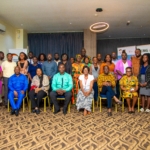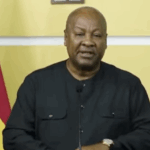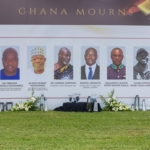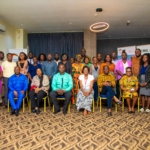
Civil Society Organizations on Migration across Africa have reiterated their commitment to promote the ratification of the African Union (AU) Free Movement Protocol. This was made known during a high-impact hybrid workshop and advocacy dialogue organized from 28th to 29th July 2025 in Accra.
The workshop focused on advancing the ratification of the African Union Protocol on Free Movement of Persons, Right of Residence, and Right of Establishment (AU FMP). The event brought together 48 onsite participants and 31 virtual participants representing civil society organizations (CSOs) from 10 African Union Member States, alongside key policy actors, migration experts, and development partners.
The two-day event was co-organized by the CSO Coalition on Migration in Ghana, with support from the Deutsche Gesellschaft für Internationale Zusammenarbeit (GIZ) through the Programme “Shaping Development-Oriented Migration (MEG).” It aimed to equip CSO leaders with advocacy tools, policy knowledge, and continental perspectives to strengthen national campaigns for the ratification and implementation of the AU Free Movement Protocol.
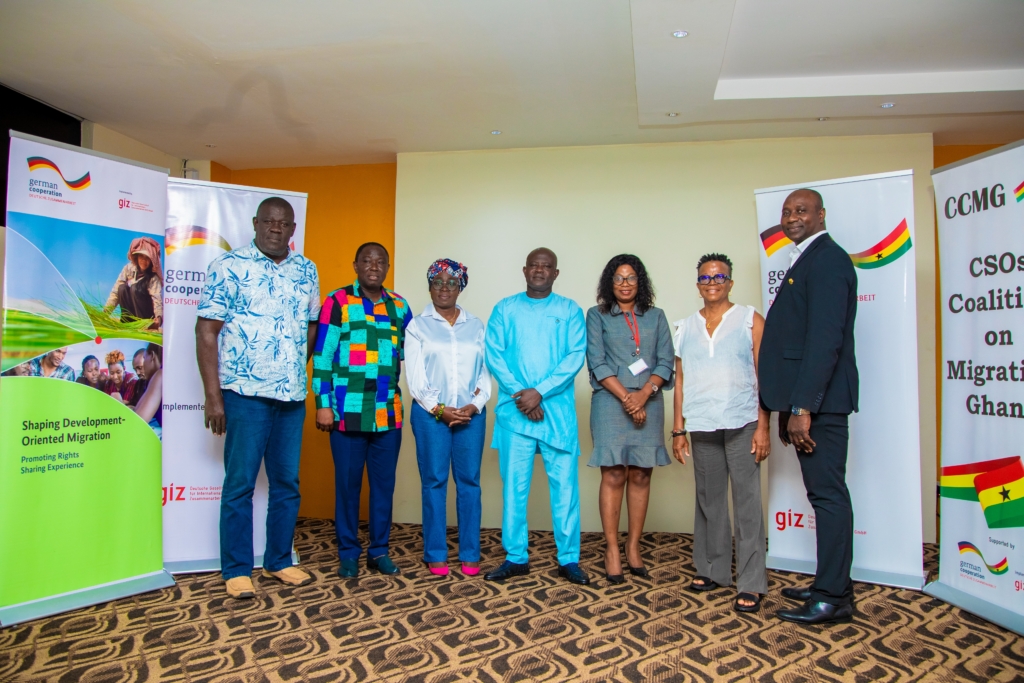
The dialogue builds on an earlier international peer-to-peer exchange among civil society organizations from India, Nepal, Vietnam, Kosovo, Georgia, Albania, Serbia, Colombia, Ecuador, and Ghana held in November 2024 and facilitated by GIZ-MEG.
During that meeting, regional priorities were identified, and African CSOs, represented by the CSOs coalition on Migration, Ghana (CCMG) collectively selected “Promoting the Ratification of the AU Free Movement Protocol” as their central theme. This vision has since gained both legitimacy and urgency within African Union (AU) frameworks (AU FMP and AFCFTA), particularly given the slow progress on ratification compared to the more advanced implementation of the African Continental Free Trade Area (AfCFTA).
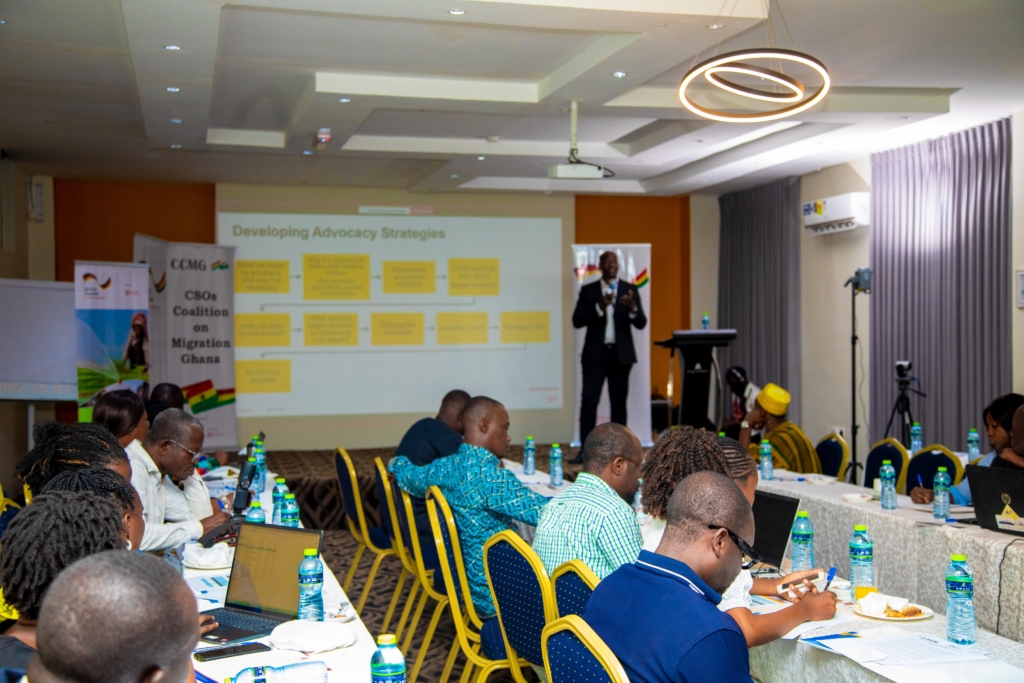
Since its adoption in January 2018, only four AU Member States, Mali, Niger, Rwanda, and São Tomé and Príncipe, have ratified the Protocol, despite 32 having signed by July 2022. This lag contrasts starkly with the comparatively rapid ratification of the AfCFTA, despite both being adopted in the same year. This workshop reaffirmed the importance of Civil Society Organisations (CSOs) in this process. Positioned close to communities and equipped with strong advocacy tools, CSOs are pivotal to catalysing national action and driving a whole-of-society approach to migration governance.
Speaking at the event, Mr. Eric Peasah, Convener of the CSOs Coalition on Migration in Ghana, drew upon the words of Julius Nyerere about a united Africa, emphasizing that “Africans once journeyed freely from Timbuktu to North Africa, from Kano to Tripoli and across ancient caravan routes.
Though these journeys were long, they were often freer than today’s air travel, hampered by bureaucracy and restrictive visa regimes.” He reiterated Dr. Kwame Nkrumah’s vision of continental unity, stating that “Africa Must Unite is not just political rhetoric; it is an economic, social, and spiritual imperative.”
Madam Rita Amukhobu, Head of Humanitarian Affairs at the African Union Commission (AUC), provided valuable insights on the current status of the Protocol’s ratification. In her presentation, she emphasized that despite recurring concerns over regional security, the protocol remains critical to Africa’s integration agenda. She urged participants to focus on the progressive realization of the protocol following ratification as central to the advocacy.
The workshop concluded with a renewed resolve to intensify national advocacy campaigns, engage governments, and collaborate with regional institutions to secure ratification and full implementation of the Protocol. This initiative is supported by the German Federal Ministry for Economic Cooperation and Development (BMZ) and implemented by the Deutsche Gesellschaft für Internationale Zusammenarbeit (GIZ) GmbH under the Programme “Shaping Development-Oriented Migration”.
About MEG
The Global Programme “Shaping Development-orientated Migration” (MEG), which is closely aligned with the Global Compact for Safe, Orderly and Regular Migration (GCM), supports partner countries to make gender-responsive contributions to the GCM focusing on regular migration, diaspora cooperation, mitigating precarious situations, and fostering global partnerships with a whole-of-Government and whole-of-Society approach.
About GIZ
GIZ has over 50 years of experience in a wide variety of areas, including economic development and employment, energy and the environment, and peace and security. We work with businesses, civil society actors, and research institutions, fostering successful interaction between development policy and other policy fields and areas of activity. The German Federal Ministry for Economic Cooperation and Development (BMZ) is our main commissioning party.
Currently, GIZ promotes sustainable development in Ghana via about 50 programmes and projects. Our activities currently cover three priority areas: Energy and Climate, with a concentration on renewable energy and energy efficiency; Training and Sustainable Growth for Decent Jobs, and Peaceful and Inclusive Societies, which looks at good governance. For more information, please visit: www.giz.de/ghana.
- President Commissions 36.5 Million Dollars Hospital In The Tain District
- You Will Not Go Free For Killing An Hard Working MP – Akufo-Addo To MP’s Killer
- I Will Lead You To Victory – Ato Forson Assures NDC Supporters
Visit Our Social Media for More

